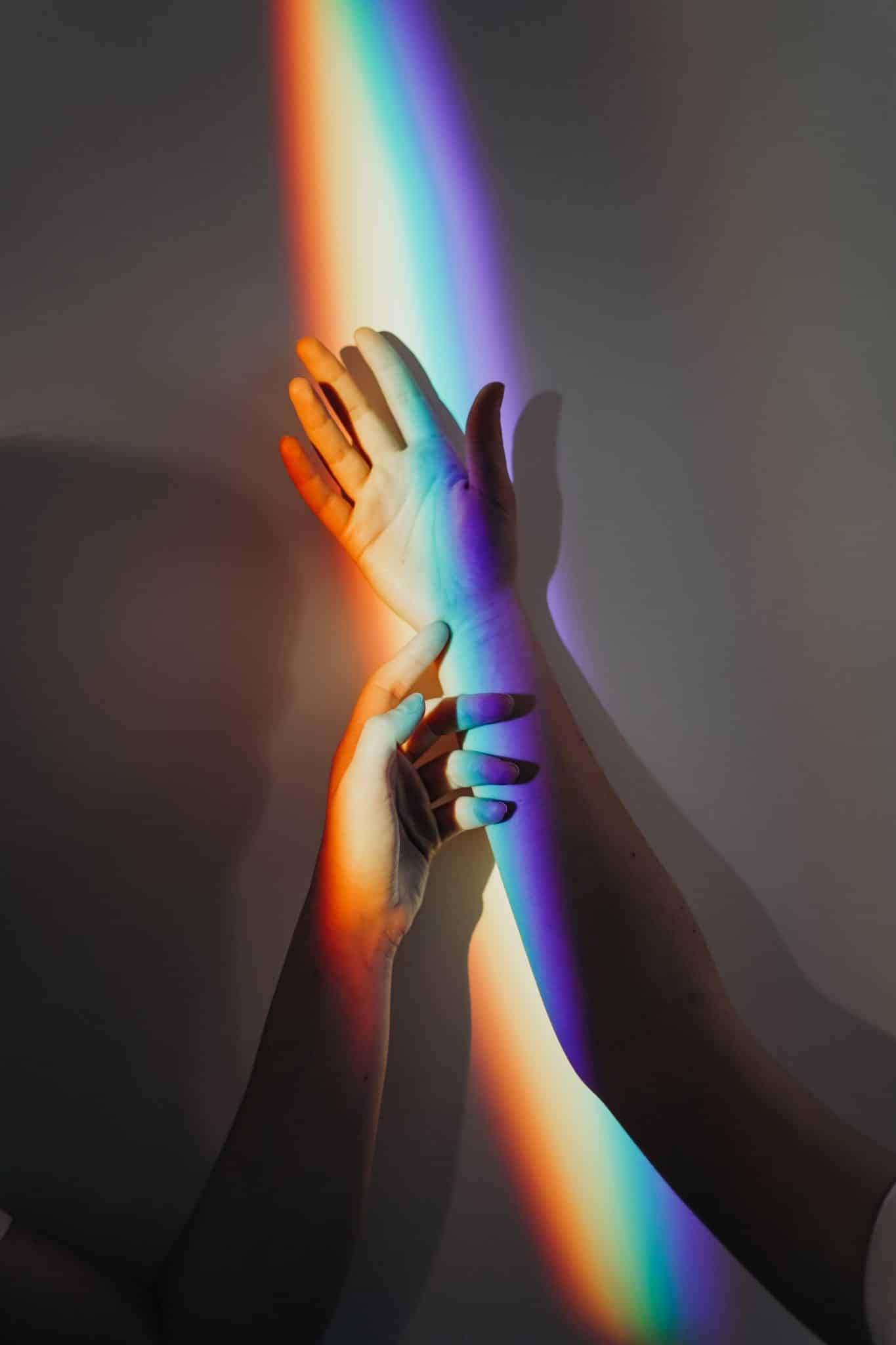What is on this page
- Beyond the Norm: Understanding Non-Traditional Relationships and Identities
- Exploring the Spectrum: Understanding the Different Forms of Non-Traditional Relationships and Identities
- Building Trust: Communication in Non-Traditional Relationships
- Breaking Barriers: Discrimination and Support for Non-Traditional Relationships and Identities
- The Benefits of Non-Traditional Relationships and Identities for Individuals and Society, and How Counselling Can Help
Beyond the Norm: Understanding Non-Traditional Relationships and Identities
Non-traditional relationships and identities are those that transcend societal norms and expectations. This can include but is not limited to polyamorous relationships, open relationships, consensual non-monogamy, relationship anarchy, genderqueer and non-binary identities, and asexual and aromantic identities.
There is an increasing acceptance and visibility of non-traditional relationships and identities in society. Society has become more open-minded and accepting of diversity. Non-traditional relationships and identities are becoming more visible and accepted. With the help of social media and the internet, individuals in non-traditional relationships and identities can find and connect with others who share similar experiences, leading to greater visibility and understanding.
The challenges faced by non-traditional relationships and identities: People in non-traditional relationships and identities often face discrimination and prejudice from society. They may also struggle with jealousy, insecurity and a lack of understanding from family and friends. They may also face legal challenges, such as the lack of legal recognition for non-traditional relationship structures. Additionally, it can be difficult for people in non-traditional relationships and identities to find representation in media, leading to a lack of understanding and acceptance.

Exploring the Spectrum: Understanding the Different Forms of Non-Traditional Relationships and Identities
- Polyamorous relationships involve having multiple romantic or sexual partners simultaneously, with the consent and knowledge of all parties involved.
- Open relationships: allow for sexual or romantic relationships outside the primary partnership, with the consent and knowledge of both partners.
- Consensual non-monogamy: encompasses a wide range of relationship structures and agreements in which all parties involved have consented to engage in sexual or romantic relationships outside the primary partnership.
- Relationship anarchy is a philosophy that emphasizes each person’s needs and desires rather than adhering to traditional relationship roles and rules.
- Genderqueer and non-binary identities: individuals who identify as neither exclusively male nor female may identify as a combination of both, neither, or a different gender altogether.
- Asexual and aromantic identities: individuals who do not experience sexual or romantic attraction, respectively.
Building Trust: Communication in Non-Traditional Relationships
In non-traditional relationships, open and honest communication is crucial for building trust and understanding among all parties involved. It allows for the setting of boundaries and the addressing of any concerns or issues that may arise.
Setting and respecting boundaries: In non-traditional relationships, it is essential to set and respect boundaries regarding what is and is not acceptable in terms of relationships outside the primary partnership. This includes discussing and agreeing upon what types of relationships are allowed and what types of behaviour are off-limits.
Navigating jealousy and insecurity in non-monogamous relationships: Jealousy and insecurity can often be present in non-monogamous relationships. Nevertheless, it can be addressed and managed with open and honest communication. Individuals need to work through their feelings and find ways to feel secure in their relationships instead of trying to control the actions of others. This may include setting boundaries, having open communication, and practising self-care.
Breaking Barriers: Discrimination and Support for Non-Traditional Relationships and Identities
People in non-traditional relationships and identities often face discrimination and prejudice from society. This can include but is not limited to, discrimination in the workplace, housing, healthcare, and legal systems. Societal discrimination can also lead to isolation and a lack of acceptance from family and friends.
Strategies for coping with discrimination and prejudice: Coping with discrimination and prejudice can be challenging, but some strategies can help. These include: finding and connecting with supportive communities, practising self-care, educating oneself and others about non-traditional relationships and identities, and advocating for legal and social change.
The importance of community and support networks: Community and support networks can provide a safe and accepting space for people in non-traditional relationships and identities. They can also provide information, resources, and a sense of belonging and validation. Support networks can also be an essential source of information and allies in advocating for legal and social change.
The Benefits of Non-Traditional Relationships and Identities for Individuals and Society, and How Counselling Can Help
How individual and couples counselling can help: Counselling can help individuals and couples in non-traditional relationships navigate the unique challenges they may face. Therapy can help individuals develop better communication skills, work through feelings of jealousy and insecurity, and learn how to set and respect boundaries in their relationships. Couples counselling can also help couples develop a deeper understanding and acceptance of their non-traditional relationship structure.
The importance of understanding and accepting non-traditional relationships and identities: Understanding and accepting non-traditional relationships and identities is crucial for individuals and society. It allows for greater acceptance and inclusion of diverse relationship structures and identities. It can lead to greater happiness and fulfilment for individuals.

The benefits of non-traditional relationships and identities for individuals and society: Non-traditional relationships and identities can offer individuals greater freedom and flexibility in how they choose to structure their relationships and express their identities. It also can lead to a more diverse and inclusive society that respects and values all forms of love and relationships. Additionally, non-traditional relationships and identities can challenge societal norms and expectations, leading to greater understanding and acceptance of diversity.

